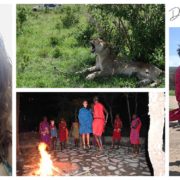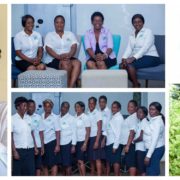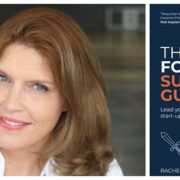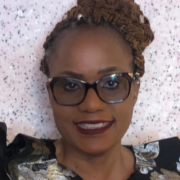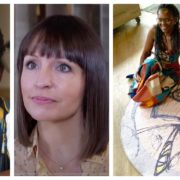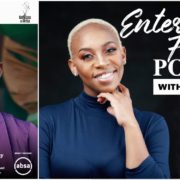by Lionesses of Africa Operations Department
We were in London this week, the global centre for Insurance, in discussions with a seriously senior insurance guru in charge of major Financial and Professional Lines. What that means is that he insures major financial and corporate customers (the Fortune 500/FTSE100 types) for (amongst other things), securities lawsuits (those bought by shareholders) and external class action suits. Heavy duty stuff.
What is keeping him and his clients awake at night, we asked over a rather expensive Latte. ‘ESG’ was his simple reply.
The problems are many, but include that a) ESG is subjective – E, S and G, each mean different things to different people and b) if you announce that you will hit a certain target by say 2025, then your shareholders, many of whom will have bought shares in your company on the back of high ESG ratings, will be watching and will expect you to hit this target… if not, they may well indeed reach for the lawyers…
Take net zero for example. If a company announced they will be Net Zero by 2050, that is quite frankly meaningless as this is the base level for (nearly) everyone, but if you say your multi-$billion company will be net zero by 2025, then the clock really is ticking…
Seems bizarre, but what he was saying in a nutshell was that companies that are proactive on ESG may actually face an increased litigation risk. Yet ESG is so subjective. What E, S or G each means to one often means something completely different to others. This is shown even in the ratings league tables. In the finance world what the major ratings agencies such as Moody’s, S&P et al have as their ratings for the companies they cover has an almost 100% correlation with each others’ ratings, this is not so with ESG. One company can be ranked high in one league table and very low in the next. Tesla is often in this group of ESG nomads, a shinning light on one, a laggard in another. As we show later McDonalds is another nomad with no clear level it can call home.
Why is this? To discover the ‘why’ we looked at a recent announcement from the all powerful Securities and Exchange Commission (‘SEC’) which regulates the USA equity markets and all listed companies, as to what they will expect from those they regulate. In the introduction they announce: “…climate risk can pose significant financial risks to companies, and investors need reliable information about climate risks to make informed investment decisions.” – so this is about the “significant financial risks” posed to companies.
Indeed this is highlighted in the paper under the Stanford University ‘Closer Look Series’ by Larcker, Pomorski, Tayan, and Watts entitled ‘ESG Ratings – A Compass without a Direction’ here:
“ESG [in this interpretation by the SEC] measures the impact societal and environmental factors have on the company, and that these factors are financially material. Under this definition, an ESG framework provides a set of risk factors that the company can plan for or mitigate through strategic planning, targeted investment, or a change in operating activity. Addressing ESG risk factors, even if costly in the short run, is expected to result in a long-term financial benefit to the corporation and its shareholders. This view of ESG (the impact of environmental and social risks on financial performance) is the one predominantly adopted by ESG ratings providers.”
Yet in the actual draft law the SEC talks about: “…specifiy[ing] disclosure on the size of corporate emissions”, which reflect the company’s impact on the environment. Which if we return to the Stanford University paper, the ‘rules part’ of the SEC concerns: “…the impact a company has on the welfare of its stakeholders, such as employees, suppliers, customers, local community, and the environment. Under this definition, a company can improve its ESG profile by withdrawing from activities that are harmful to stakeholders or improving business practices in affected areas to benefit these constituents.” Under this alternative, the shareholders bear the brunt of the short-term costs, while, according to the authors, the “long-term financial impact to the company is undetermined or unstated.” (Some might argue—hope—that shareholders tend to benefit in the long run.) This “doing good” perspective…is what most individual investors likely think of when they think about ESG quality.”
So if the US Regulator can’t get it right in their own minds, what hope mere mortals?
But seriously, what is an ESG Rating supposed to measure? Apparently, from the above paper,“ESG quality.” – That’s as clear as mud given as they say: “ESG quality itself, however, does not have a single agreed-upon definition.”
One of the top ESG Rating Agencies, MSCI (they publish ESG ratings on 8,500 companies across the globe) is quite clear – they don’t measure the impact a company has on the environment, but the opposite – the impact that flooding, heatwaves etc will have on the company’s financial health, yet their marketing leaves one in no doubt that they are after a ‘better world’. As a Bloomberg BusinessWeek article called ‘The ESG Mirage’ that focuses on MSCI’s ratings makes clear (here): Although the actual mission of the company MSCI according to their Chairman and CEO is “…to help global investors build better portfolios for a better world.” There’s virtually no connection between MSCI’s ‘better world’ marketing and its methodology. That’s because the ratings don’t measure a company’s impact on the Earth and society. In fact, they gauge the opposite: the potential impact of the world on the company and its shareholders. MSCI doesn’t dispute this characterization. It defends its methodology as the most financially relevant for the companies it rates…”.
Looking for an example? The Bloomberg Business Week article helps: “McDonald’s Corp., one of the world’s largest beef purchasers, generated more greenhouse gas emissions in 2019 than Portugal or Hungary, because of the company’s supply chain. McDonald’s produced 54 million tons of emissions that year, an increase of about 7% in four years. Yet on April 23, MSCI gave McDonald’s a ratings upgrade, citing the company’s environmental practices. MSCI did this after dropping carbon emissions from any consideration in the calculation of McDonald’s rating. Why? Because MSCI determined that climate change neither poses a risk nor offers “opportunities” to the company’s bottom line.”
This lack of clarity in the ratings league table obviously creates massive problems for investors, but problems that the SEC and other regulators will it seems just ignore. Their issue is not the position of the companies on any league table, their issue is that companies do what they say and (although the preamble was a bit confusing, the draft laws certainly were not) do what the SEC demands.
According to the article ‘SEC (finally) proposes new rules on climate disclosure’ by Cydney Posner (here): “The WSJ called it (the SEC announcement as above) the biggest potential expansion in corporate disclosure since the creation of the Depression-era rules over financial disclosures that underpin modern corporate statements,” and Fortune said it “could be the biggest change to corporate disclosures in the U.S. in decades.” …the SEC voted earlier this week, three to one, to propose new rules on climate disclosure regulation. The proposal was designed to require disclosure of “consistent, comparable, and reliable—and therefore decision-useful—information to investors to enable them to make informed judgments about the impact of climate-related risks on current and potential investments.” At 510 pages, the proposal is certainly thoughtful, comprehensive and stunningly detailed—some might say overwhelmingly so. If adopted, it would surely require a substantial undertaking for many companies to get their arms around the extensive and granular requirements and comply with the proposal’s mandates. How companies would manage this enormous effort remains to be seen.”
Obviously to start this is mainly about the ‘E’ in ESG which is to a certain extent easier to measure – the disclosure of a company’s Scope 1 and 2 greenhouse gas emissions, and, for larger companies, Scope 3 GHG emissions can be measured. But what is interesting for us is that there is clearly this increase in interest from regulators to ensure that companies are backing their words with deeds, not only in the ‘E’ but also into the ’S’ arena as we are seeing in ‘D&I’, Diversity and Inclusion.
Given that so much investment now is driven by ESG demands, both by the large funds (according to The Economist: “…the titans of investment management claim that more than a third of their assets, or $35trn in total, are monitored through one ESG lens or another.” here), but also the public at large, so companies had better make sure that if they are going to publicly support a certain sector such as women entrepreneurs or D&I then they had better ensure that they have the data to support this – as the Bank Wells Fargo knows to its cost (see here) as “a lawsuit [was] recently filed against Wells Fargo following shortcomings in the execution of its diversity hiring policy [which] also resulted in a securities lawsuit.”. This data historically has been incredibly difficult to confirm. Many financial institutions are not simply allowed to collect data on diversification of their customers or employees for fear that this may be used to move the bias against – this is an unintended consequence of not being allowed to ask on opening of a Bank Account if the customer is male or female or other such questions of employees.
We have discussed this with a major international bank and they openly confirm that this lack of information on their customers is a huge issue for them that they wish to solve and indeed the audit of the investments of a major western development agency (‘DFI’) shows similar issues (here): “Loans and advances of the overall portfolio have grown, although it is not clear if these loans are reaching the targeted segments (e.g. small and medium enterprises (SMEs), households, women, etc.)“; on financing – “…there is a lack of evidence…“; “…inconsistent and general lack of information…“; “…general reporting on end beneficiaries is missing…“;”…lack of a consistent definition…“; “...The analysis faced a substantial data constraint due to the fact that most investments did not report female client numbers across all years. …“; “…there is a lack of evidence around efforts to increase gender-based lending…”. All issues that the development agency (one assumes) has been hard pressed to solve, and in fairness, if one is as large as this particular DFI it is extremely difficult to control the data collection of say, their investments in a large Western Banking Group and how that waters down into supporting their desired sector, to ensure that the money hits the right target.
Luckily there is help at hand. If companies wish to seriously support Africa (and there is enough data to support the premise that building Africa is best done business and that female entrepreneurs drive community building better), that through Melanie and the inspirational community of over 1.5 million African Female Entrepreneurs that is The Lionesses of Africa, there would be the opportunity to not only design a serious way of supporting women entrepreneurs across Africa (and indeed our ever growing Diaspora), which has already been done with a number of forward thinking western companies, but most importantly, there would be quantifiable data that could be used to create serious ’S’ of the ESG bragging rights, marketing and would probably (no promises!) increase investment into the host company concerned.
We are two years into the UN’s ‘Decade of Delivery’ for the SDG’s, and as the UN, as Shareholders and now Regulators are all saying – the time for talking is over. The ‘Problem with ESG’ can be solved with the right partner.
Time to put the money where the mouth is.
Stay safe.



